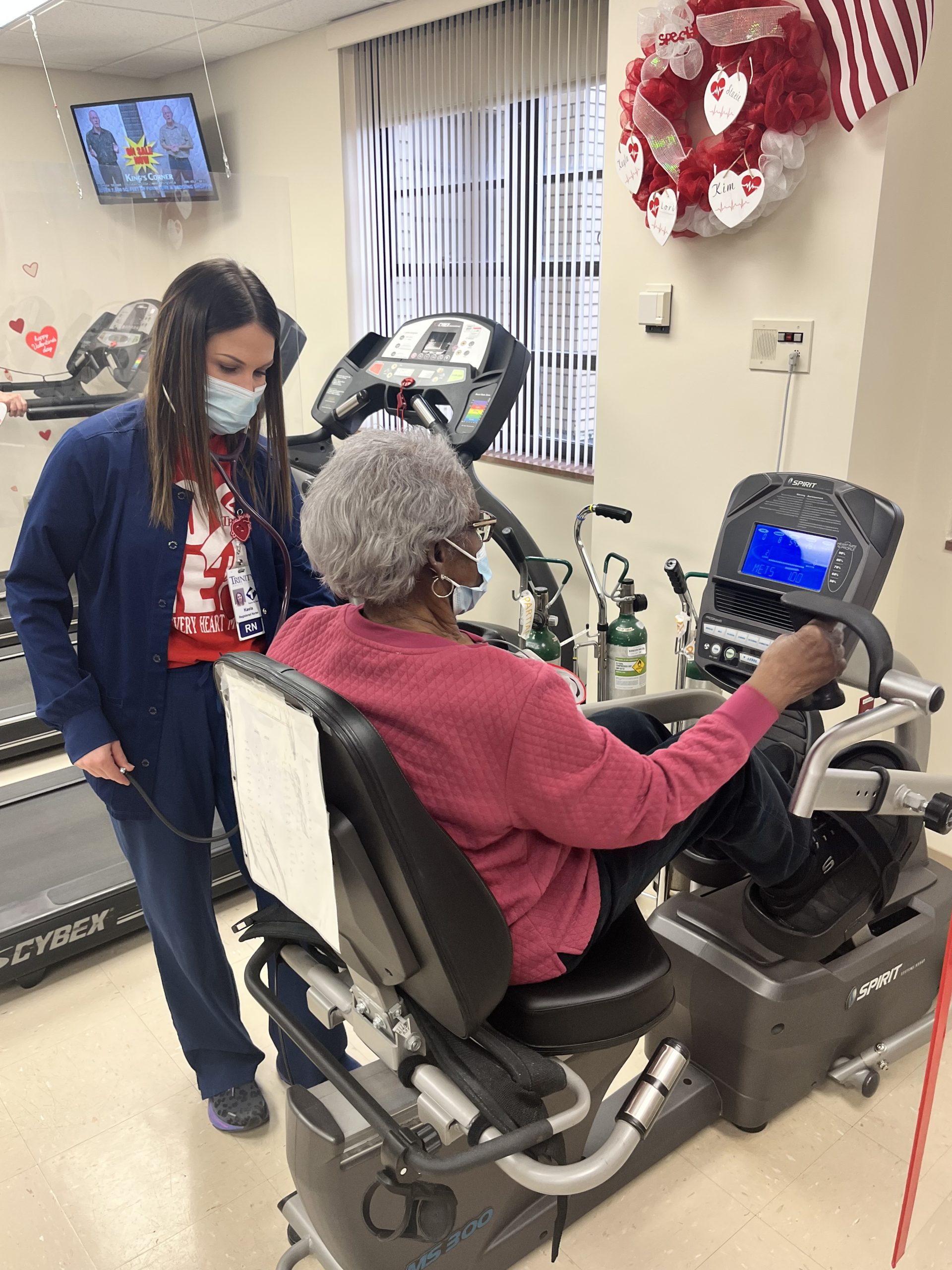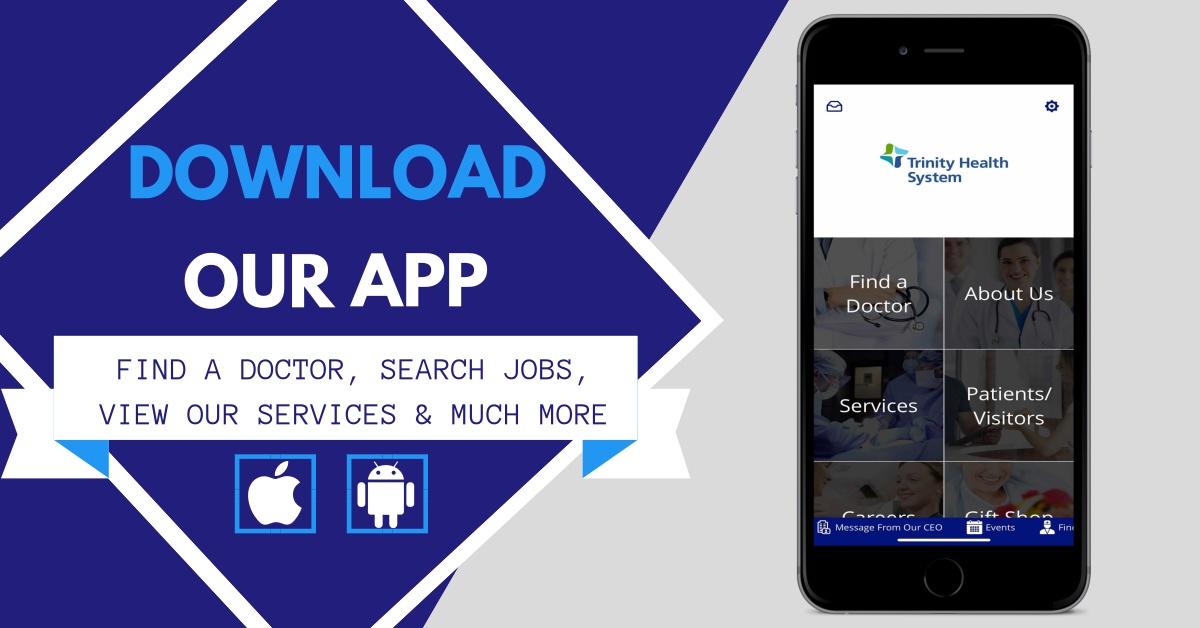Cardiopulmonary rehabilitation (rehab) is a physician prescribed comprehensive exercise and education program. The goals are to:
- Improve your health
- Reduce symptoms
- Reduce your risk of future heart problems
- Improve respiratory status
Who Needs Rehab
These are some common conditions that rehab may help:
- Heart attack
- Heart failure
- Angina (chest pain)
- Heart bypass surgery or heart valve surgery, including transcatheter valve replacement
- Heart transplant
- Procedures such as angioplasty and stenting
- COPD, emphysema
- Pulmonary fibrosis, interstitial lung disease
- Lung transplant
- Long term covid
- Cystic Fibrosis
Benefits of Cardiopulmonary Rehab
- Improve your quality of life
- Reduce pain
- Lower your risk of having a heart attack or another heart attack
- Perform your daily tasks more easily
- Increase your activity level and improve your fitness
- Learn how to eat a heart-healthy diet
- Lose weight
- Quit smoking
- Lower blood pressure and cholesterol
- Reduce stress
- Lower your risk of dying from a heart or pulmonary condition
- Breath better
- Decrease oxygen use
- Return to work sooner
- Stay independent
What to Expect
Your rehab team will design an individually tailored program that is safe for you. Before you start, the team will assess your overall health. A health care provider will do an exam and may ask you questions about your health and medical history. You may also have some tests to check your heart.
Your Cardiopulmonary Rehab program will include the following:
- EXERCISE: Regular exercise helps strengthen your heart and improve your overall health. Exercise equipment may include (according to your ability) a Treadmill, Recumbent Bike, Recumbent Stepper or an Arm Ergometer. Your team will monitor your heart while you are exercising. You will start slowly, and increase your physical activity over time. Your rehab team may also suggest you do other activities, such as walking or yard work, on days you are not at the program.
- HEALTHY EATING: Your team will encourage you to make healthy food choices. They can help you plan a diet to help manage health problems, such as diabetes, obesity, high blood pressure, or high cholesterol.
- EDUCATION: Your rehab team will teach you other ways to stay healthy, such as quitting smoking. If you have a health condition, such as diabetes or high blood pressure, your rehab team will teach you how to manage it. Your family will be included in education as appropriate.
- SUPPORT: Your rehab team will help support you in making these lifestyle changes. They can also help you cope with anxiety or depression.
Monitoring:
All patients will wear a telemetry device while exercising. This will transmit you heart rhythm to a monitor that is being observed by one of the rehab staff. The staff will also be monitoring your blood pressure and pulse oximetry when needed. An ongoing assessment of your medication, weight and blood Sugars (if you are a Diabetic) will be reviewed at each session.
Length of Program:
The program last anywhere from 8 to 12 weeks or longer and you will be scheduled to attend 2 to 3 sessions per week depending on your individual need and insurance coverage. Each exercise session last 30-60 minutes.

For more information about Cardiac Rehab and other services offered at Trinity please visit www.trinityhealth.com



